Please allow me to introduce myself / I'm a man of wealth and taste
Ender's Game is a sci-fi story set on and around a future Earth. In this future, Andrew "Ender" Wiggin, an incredibly intelligent child, is recruited by an interstellar human military to begin training for officerhood in its schools. Younger than the other children in the school, Ender has to navigate the isolation imposed by his exceptional performance along with the strange mindgames his teachers are playing in the school. The teachers' goal is to groom Ender into becoming a military commander capable of defeating an alien threat (the Formics, known as "buggers" for their insect-like appearance) that had twice attempted invasion of Earth before the beginning of the book.

The world of the story only somewhat questions the ethics of developing children into soldiers. It is an accepted part of their society, even prestigious in some manner for the children who attend. Parents are not glad to see their children off, exactly, but it is seen as a necessary part of preparing for the buggers. Supposedly, in our own world, the US Marine Corps recommends the book for its officers-in-training to read, due to its handling of military themes. Given the general cult-ish mood of the Marines even beyond that of other branches of the US military, this is sobering. But the book pulls few punches about the effects that the indoctrination of the Battle School and Command School have on Ender and his peers. Ender himself suffers multiple mental breakdowns, and we see similar events take place for other children he interacts with. The children of the school are driven to extreme violence due to the tensions ratcheted up by the teachers, and some die. It is mentioned that one previous child, no older than 12, died by suicide due to the stresses of the school; others die due to fights that break out between the children or injuries sustained in training. It is argued that this tension is necessary to develop the children into capable soldiers, and therefore, to win the war with the buggers.
The story even includes the architect of Ender's torturous schooling, Colonel Graff, surviving a court-martial for his conduct at the school. Though he was able to shield himself from scrutiny during the war and carry out his plans for Ender's education, the records of the Battle School became unsealed after the war. Civilians were able to see what he had done, and judge him. In interludes throughout the book, Colonel Graff discusses the inevitability of this judgment with teachers and other military officers. He supposes that the civilians won't like knowing how the sausage is made, but that the ends justify the means; if humans are able to win the war because of his actions, he accepts the responsibility for them. And if they aren't, then he supposes, they'll all die anyways. In point of fact, this is the main thrust of his defense in the court-martial, and he is able to convince the judge to side with him. If it could be proven beyond doubt that the war could be won without the extreme measures he had taken, then he could be condemned. But of course no such proof could be found. How could we know what could happen in such an alternate world? Historians can play supposition games about how the world might look different if events had transpired differently in the past, but ultimately, they're only games. It is impossible to know.
Now, I hope it goes without saying that here, in our real world, we know that indoctrinating children into becoming soldiers in this manner is morally repugnant. And actually, the book does give a rebuke to this thought; though the military strategists had, for various reasons, believed it was necessary to train children from a young age in order to fight the war, it is revealed near the end of the book that no war even needed to happen. The Formics, in fact, had attempted invasion of Earth due to a misunderstanding, not realizing that humans were sapient. Once they realized this, they felt remorse for what they had done, and had no intentions of returning. Their first thought upon seeing human forces invading their own worlds in a pre-emptive strike was simply one of dejected resignation, that the humans "had not forgiven them". Though they attempted to defend themselves once the war was begun, the Formics had never intended to invade Earth again, and thus the entire justification of the war was unnecessary. And when Ender himself learns this, he seeks to atone for his role in their genocide.
But if this weren't true, if the buggers had been preparing to invade again... it's unclear what exactly the story would have to say about whether the process was right or wrong. It worked. What more is there to say than that?
We often find it difficult to reckon with the past. Things happen that we know are unjust, that we know are terrible. And yet, sometimes, pockets of good or of beauty can arise from them. Modern American music, for one small example, is built on the theft from and suffering of black Americans who made many of the innovations that caught hold and now "sound beautiful". Does that justify the suffering it came from? Of course not! ...Right? No. But?

This is the strange position we find ourselves grappling with for so many aspects of our lives in our postcolonial society. And ultimately the question must arise: What are we to do about this? We can recognize the injustice that underpins so many aspects of our lives, but for anything deeper than, say, a land acknowledgement, there is often little stomach to even think about the mechanics of how "correcting" that injustice is to be executed. In many cases, "correcting" is not even fully possible. Climate change cannot be completely undone. At this point, the climate has and will continue to change, beyond our ability to put back to the way it was before our intervention. All we can do now is limit how much it changes, and hope that's enough. And that must be done with as much expediency as we can possibly carry out.
Baby don't hurt me
Ender's Game doesn't have to be interpreted as focusing on "Do the ends justify the means even when the means involve abusing children?" Again, I don't think it takes much convincing to say that the answer to that, at least within this particular story, is a clear and emphatic no. Though the story is in some ways muddy on the question as a whole, I also don't think it's controversial that in our world the answer is still no. Reading this book as a kid, speaking honestly, this question kinda flew over my head. I certainly didn't spend much time contemplating it. Instead, I spent much more time thinking about Ender himself.
In some ways, I related a lot to Ender. I always did well in school, to the point that I tried to hide my grades from my friends so I didn't seem like I was bragging. But I was always a little distant from them, for a variety of reasons but including that fact. I was a weird kid, isolated in a lot of ways. And I felt I had very little control over my environment and the course of my life. As one example, when I started lurking in furry spaces circa middle school, I hid it obsessively from my parents. Anything I did share with them felt less mine. I don't talk about furry with them even now.
Throughout the book, a great deal of pressure is placed upon Ender to be perfect. Once he gets promoted to leading a team for the main wargame played at the Battle School, he cannot let himself lose a single match. Similarly, it is supposed that he must become a military genius to fight the buggers. But, interestingly, it is not exactly a sense of "smarts" or "hardness" that the military strategists believe will be the root of Ender's victory in the war. It is a softness within him, his deep ability for empathy and understanding the way his opponent will behave, that allows him to win so consistently.
The juxtaposition between this empathy and what Ender is asked to do with it is the root of much of Ender's inner turmoil throughout the book. After his largest mental breakdown, the military asks his sister, Valentine, to come console him and, more or less, make him useful again. And in the conversation they have, he lays out what, to me, had always been the actual core of the book:
"It goes deeper than that. Being here alone with nothing to do, I've been thinking about myself, too. Trying to understand why I hate myself so badly." "No, Ender." "Don't tell me 'No, Ender.' It took me a long time to realize that I did, but believe me, I did. Do. And it came down to this: in the moment when I truly understand my enemy, understand him well enough to defeat him, then in that very moment I also love him. I think it's impossible to really understand somebody, what they want, what they believe, and not love them the way they love themselves. And then, in that very moment I love them--" "You beat them." For a moment, she was not afraid of his understanding. "No, you don't understand. I destroy them. I make it impossible for them to ever hurt me again. I grind them and grind them until they don't exist."
To talk about love... I am by no means the most eloquent, nor the wisest of anybody you will ever read opining on it. But, this passage has always resonated deeply with me -- the idea that, in its most condensed form, to love somebody is to recognize and honour their existence separate from yourself.

If I had to build a "hierarchy of needs" to explain what exactly love is, I would start from here. To love someone -- not just to love your interactions with them, or the things that they provide for you, but to love them as themselves -- you must first recognize that they are a person. It sounds... stupid. Too simple. And yet, this is a bar I find that, in my own life, is not always cleared by the people who seek my affection. And so, it is where I place the base.
Once you recognize they are a person, you must begin to understand what kind of person they are. You must see inside them. Sometimes, with careful observation, you can make steps towards this from the outside. Those little moments where we believe nobody is watching can reveal a great deal about our inner monologue, to an appropriately perceptive person. But it's difficult, and perhaps the greatest fantasy of Ender's Game is the ease with which Ender is able to come to understand his enemies without them intending to reveal this information.
Once you know what kind of person someone is, then you can begin to internalize their wants, desires, and beliefs, and particularly how these things are different from your own. You started by recognizing what they are (a person). The next step was to understand who they are. But now, you need to see how they are. And as you begin to see more and more in their own eyes the world around them, as you begin to understand them the way they understand themselves, this is where love starts to form.
Love takes many forms; we know, of course, of romantic love. We can understand platonic love as well. And, to me, the difference between these sorts of loves is, from the point love begins to form, different places that two people find themselves agreeably directed towards. Sometimes, love is a fast, passionate, almost violent reaction. Other times, it is slow and gradual -- the two parties don't even know what their relationship is to one another until they realize, somewhere before now, they must have crossed a threshold, but they can't pinpoint it down to any one moment upon which the change occurred. Sometimes love involves sex. Other times it does not. Sometimes love arises directly from the permanent, functional relationships we have to one another. Other times, it comes more ephemerally, not even sure that it will last.
At Poe's masquerade
What is most difficult, to me, about love, is... how we understand other people. I guess I'm arguing that's the whole thing, but I direct it specifically to this question: How do we know the idea we have in our head of another person is right? How do we know it's not just a fiction we've constructed?
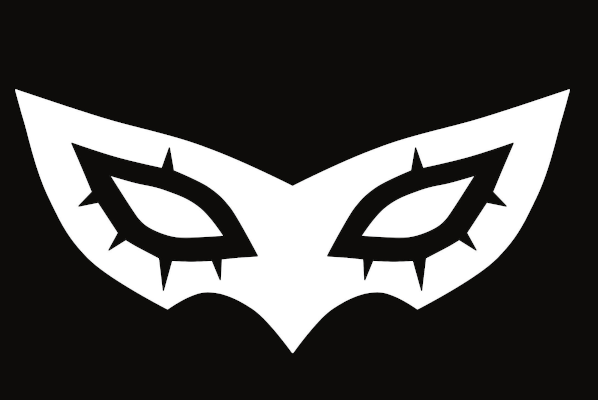
We can try to resolve the question by conversation, by talking through our ideas and thoughts. We confirm that what we anticipated the other would think is correct and we correct our anticipations where our expectations do not match. In such a conversation, it's easier to establish a ground truth; if we assume that the other person is being honest and has full self-awareness about their beliefs and opinions, then whatever they tell us is, de facto, correct. But of course, this assumption does not always hold.
We all wear masks. Some more widely than others, sure, but everybody has a private life. There are thoughts we keep private, things we do just for us. Privacy is an important facet of a free society. We wear these masks for many reasons.
The most convincing of facades is that which looks like it is revealing everything. I have always been well-versed in the skills of the mask. Where my family was concerned, the mask helped protect me and keep my interests my own. Where others were concerned, it has been... like a game for me. How well could I learn someone else? How much information about myself would I have to "pay" to obtain that knowledge? That circling around, that uncovering one another, that flirtatious revealing of ourselves. Is he into me? Am I into him? Do either of us know? And on it goes, until we reach a breaking point; one or the other finally makes the move, or we find some disqualifying factor, and the tension is broken.
But the trouble is, I know myself. I know that I do not often reveal information about myself. For example, where this blog has gotten... personal, sometimes in intense and difficult ways, it's still constructed. The view a person might have of me if all they ever saw was this blog is, simply put, not the entire story. It may be revealing, at times, of deeper truths, but it is not complete.
So, faced with this, what are we to do? It would be a fair conclusion to draw that, when talking with me, at least some skepticism should be applied to what I say. And others, whether they know it or not, deceive even themselves, refusing to come to terms with the pieces of themselves that contradict what they want to be true. Maybe, we can observe said person; we can find them in a novel situation and see if how they respond to it is the same as we expected it to be. But establishing ground truth is so much harder here. In fact, I would argue that it's even pretty common to find ourselves in situations where, frankly, we can't prove that we do or don't know someone. We take it on faith, and after the fact, we were right, or we were wrong. In the same way that Colonel Graff gambles that torturing Ender will work for the ultimate process to defeat the buggers, we make gambles about each other all the time. They just have much, much lower stakes.
I won't trust myself / Once I hear your call
Understanding this gamble, I think, is desperately important to understanding the difference between infatuation and unrequited love. Consider the following. You have someone for whom you have begun to develop what you think are capital F Feelings. Maybe you've been chatting, maybe you've been hanging out, maybe something else. But, you've done something, and you've begun to form a picture in your mind of this target of your affection. Is what you're feeling infatuation? Or is it love, possibly for someone who knows much less about you?
I posit that this question is exactly the same one as whether the idea you have in your head of this person is right. If you are correct, it's love, possibly unrequited. If you are wrong, it's infatuation.
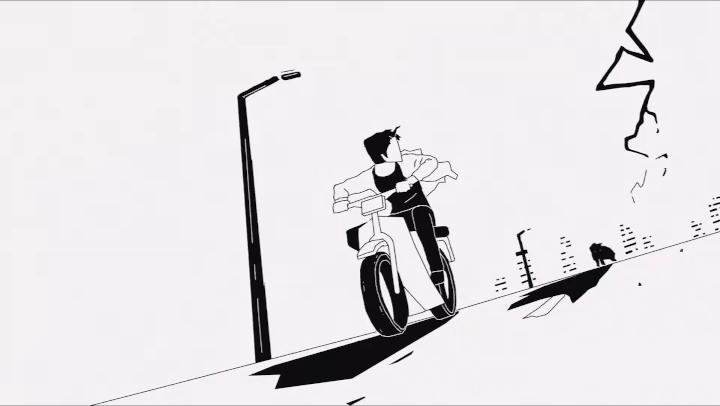
From time to time, I have been the target of others' unreturned affections. In one case, we had been friends for a while. At the time, I was dating someone. We talked a decent amount, though the conversations were never especially deep. He convinced me to try a few new hobbies, and I enjoyed them. I tried to convince him to explore things he liked but had mental blocks over associating with. He didn't. He invited me and my boyfriend over to hang out sometimes. Occasionally, during these hangouts, he made me uncomfortable. I would move away from him, sit on a different couch. Because he couldn't cuddle up to me, he got mad at my boyfriend for "scaring me off". I guess he didn't know we were dating? But there was not a lot of self-awareness in him in general.
That boyfriend and I broke up a few months later. It was messy. It happened quick, and it hurt. This infatuate was one of the first people I knew that I saw after the breakup happened. I think he was even the second person I told, the first in person. Mind you, I didn't want him to be the first person I told. At the time, I couldn't describe why but something about him... something felt off. We were friends, but I didn't want to be more than that. Yet, he was the first person I saw, and I knew it would be even weirder if he heard it from someone else. So I told him.
Two weeks or so later, he asked me out. I still wasn't in a good place after the breakup. I told him I couldn't answer that question right then. I took my time to process the breakup, longer than he wanted to wait. Eventually, I did come back to him, and I told him no. I wasn't interested in dating him. He tried to argue with me about it. That he would disrespect the thought behind the decision I made to say no deeply upset me. After a rather quick point, I refused to talk to him. We stopped being friends.
Every so often, we'd see each other again. Every so often, we'd try to reconnect and talk through what had happened. I was happy when, during the first of these conversations, he admitted to me that he hadn't really seen me as a person. He didn't know much about me. That was, frankly, true. I didn't let him in much at all. He had formed a lot of ideas about me, but they weren't even based on an idea of what as a person I was interested in and motivated by. They were based on his ideas of what he wanted in a partner. I was just the body to fill that pose. That happiness left me a few minutes later, when he talked about a different way he hadn't viewed me as a person, and how doing so was so cathartic for him because of other stresses he had going on in his life at the time. The swain had made a bet about the person I was, but he was very, very wrong. He was infatuated, plain and simple. So infatuated, in fact, that when I told him how his picture of me was wrong, he tried to argue -- no, actually, he was right about who I was, and I was wrong.
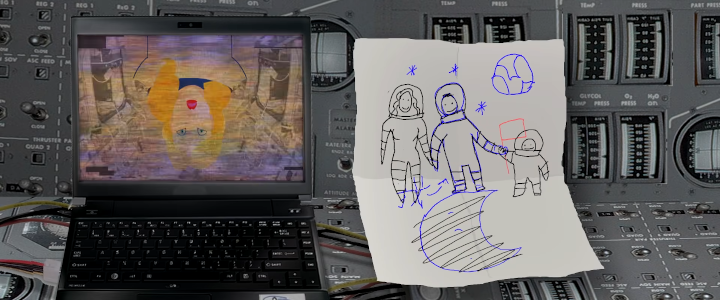
I have also been the source of unreturned affections. In one case, we talked online, off and on, somewhat frequently. I was new to things like instant messenging, as well as my own understanding of my sexuality. We talked, and I began to form a picture in my mind of the kind of person he was. He didn't usually show up to furmeets in town. When he did, he sat in the corner, on his phone. Online, he would be a lot more comfortable chatting. Eventually, I suggested in a roundabout way we go on a date. He declined. That was that.
The next semester, I began in earnest to form a furry club on our university. I began by collecting the group of people who would be in the club. I invited them to hangout together. I held movie nights, board game nights, and similar. Sometimes it was out of my apartment. Sometimes it was out of buildings I had keys to on campus from side jobs I worked. After our hangout sessions, the guy would straggle behind. He and I would find ourselves chatting a while on our own. It was never anything too deep, mostly just classes and things like that. But the picture in my mind of him became more and more refined. Eventually, every time, he'd go off home on his own.
I went to my first furry convention that year. He invited me to a room party a mutual friend was throwing. I got there, we chatted for a while, eventually I ended up deeper in the room talking to someone else. I looked over to where he had been. And there, embracing him, was his boyfriend. I decided, what the hell, I'll drink tonight. The rest of the night, I made good friends, figured out what to do the rest of the convention, didn't really talk to the guy again for a while. There were clearly things I didn't know about him. They weren't a problem, just, I didn't know them.
Later on, I'd talk with a boyfriend of my own about the guy. Apparently, my boyfriend had fooled around with the guy at some point. My boyfriend was surprised when I told him that I would make small talk with the guy. Apparently, my boyfriend had been unable to get much in the way of those sorts of conversations with him. They talked, of course, just... it seemed like it was less. The boyfriend noticed similar things that I did -- that, even at conventions sometimes, even when hanging out with his own close friends, the guy would be glued to his phone. Was he chatting with others not present? Who could know.
There were clearly things wrong with the picture I had in my mind of the guy. It was infatuation. But was the entire picture wrong? Somewhere in there, I think I had a notion that was more or less correct of who he was. From talking to others about the guy, we seem to come up with the same answers. I never got the opportunity to really test them, but... that picture, I think, had truth to it. Since that time period, I've talked with the guy a few times. Once, I brought up the crush I had. He hadn't known much about it, besides that time I vaguely asked him out. At some point, he mentioned, maybe he should've taken me up on that. His own relationships had become messy. The implication was, those memories could have been better if we had done more together.
I wasn't offended. I say this up front just to be clear on that. But I mildly rebuked him for the thought. The messiness of his relationships... why would I have wanted to entangle myself in it? As much as it might have been a desire of mine at the time to do things with him, there's something... almost patronizing about offering that up so long after the fact. It's not important to me anymore. Even if I was right about that person he had been at the time, time changes us. He might not be the same. I might not be the same person who was interested in him. And if there was something between us now, it would be for different reasons.
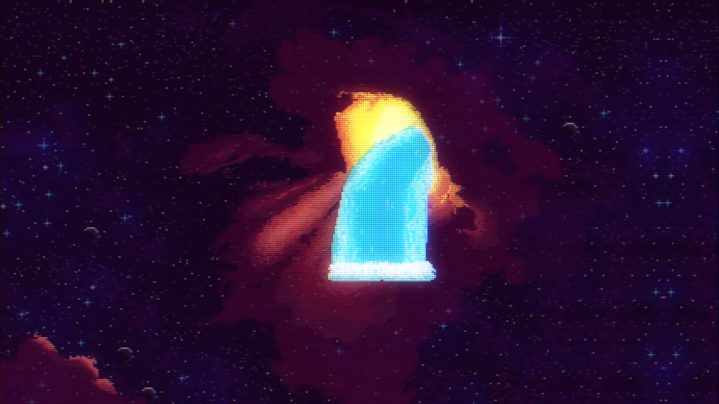
I don't do regret. I can admit when I made mistakes, and be sorry when my actions hurt others. But now that we're here, I don't spend much time thinking about what sorts of things could have been if I acted differently. I think this is one of (many) ways in which people struggle to talk about these sorts of one-sided relationships. If we talk after the fact about them, there are ways in which it feels dishonest about saying years later that, well, maybe we could have done more to explore our relationship to one another. Because, yes, maybe we could have. But, we didn't. And it's hard to put ourselves into the mindsets we had at that time. It seems... nice, to say that we could've done things together. It seems like the sort of thing we'd want to hear. But saying things just because we think the other person wants to hear it, that's not honesty. And in that moment, it's hard to disambiguate what's true and what's just being said to be nice.
The truth is, I still like the guy. I still have a picture in my mind of him, and I still don't know how true it is. And I like solving a mystery. But that's all just my side. And what I want, when I display affection for someone, is honesty. Whether they play the game, circling each other to reveal beneath the mask, or they decline, that's all I can ask for. It's what I seek to give when people show me affection, returned or otherwise.
But really, are you eating, though?
In discussing Ender's Game, I made mention of the fact that the qualities which the military found most desirable in Ender were his "softnesses". I think many of us in the queer community have dealt with toxicity, especially around patriarchal and heteronormative modes of expression. Boys expressing "masculinity" is often privileged in our world. Boys fighting, teasing each other, occasionally throwing punches. These are "hardnesses", ways of interacting with one another that can be sharp and painful. It can be about cultivating an aura of being tough or not one to mess with. This is very traditional masculinity. I talk about this specifically due to the fact that, it's what I grew up with, being born a boy and growing up to be a man (or, at least, a coyote). But I don't see hardness as totally exclusive to the traditionally "masculine" realm. Sharp passive-aggression is, in my experience, traditionally "feminine", and it may not be as direct as a punch to the face, but it's still hard in many of the same ways.
On the contrary, many of us in the queer community have been able to discover new methods of interacting with one another, "softnesses". Modes of interaction where we are tender with one another, and understanding, and empathetic. If you're mad, you don't have to throw a punch, you don't have to make a passive-aggressive remark. You can talk about the things that make you upset, and work out those feelings. In so many ways, softness is, frankly, a healthier way to address interpersonal issues. It's not weakness, it's just... a safer manner in which to come to a mutual understanding, if folks can stomach it.
I'm glad I learned to be more soft. I consider it part of the way I express my masculinity. It has been much healthier for me and the people around me when I can resolve issues with frank, honest conversations rather than by trading blows, verbal or otherwise.
However.
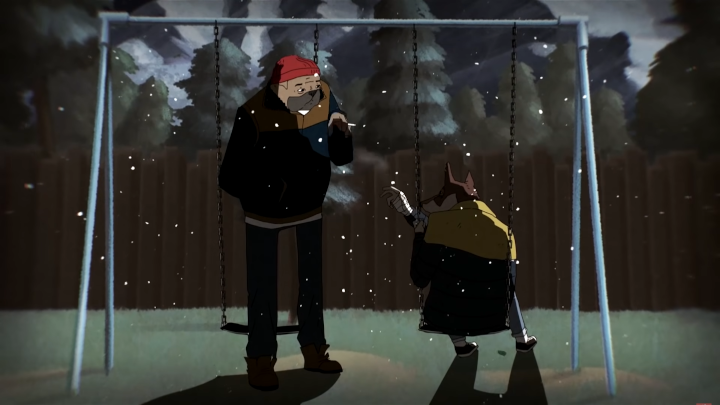
I don't think everything has to be soft. I don't think I have to always be soft. Sometimes, frankly, I respond better to getting whapped on the muzzle with a newspaper. I can still learn my lesson even if it does come sharply. I don't think there's anything wrong with that. And in talking about this, I'm approaching a much, much larger issue that, although I associate it a lot with the current communities I find myself in online, is not exclusive to them. Namely, it's this:
There is a difference between an individual's negative experiences with specific things and those specific things being inherently problematic. Further, there is a difference between even things that are problematic and a person who derives meaning from it despite that being themselves inherently bad.
In the ways we have cultivated among ourselves to interact online, we see this a lot, I think. Some callouts, for example, seem to be more about interpersonal issues between two people and less about repeated patterns of abusive and predatory behaviour. That doesn't mean that somebody did not behave in shitty manners, and it doesn't mean that there shouldn't be consequences for those shitty actions. But it's important to think about what the best ways to address issues are.
In a related way, I find some discussions of things in media quite... odd. I hate to invoke her name, but when discussions of Harry Potter comes up, there is a weird song and dance that plays out. There are people who enjoyed Rowling's books as a kid that are unsure how to handle her now public harmful and shitty views. So we go through the song and dance of "separating the art from the artist", but I think even that does not resolve the issue. Because if we look deeper, the books themselves are deeply embedded with prejudices of Rowling's that, speaking personally, I was not consciously aware of when I read and enjoyed them.
If the books are problematic, and people enjoy them, what does that say about those people? Scared of the implications of this question, people who previously enjoyed the Harry Potter books either ignore these deeper issues with the text that go beyond Rowling's public, extratextual campaign to sully her own name, or they find themselves with a desire to play hot potato with the books and get as far away from them as they can. But I don't think that's fully honest. Yes, we need to recognize prejudices as they occur in our lives, and we need to work to keep them from poisoning us and the relationships we have with those around us. But that doesn't mean we have to lie about enjoying those books as a kid. We just also have to have clear eyes about disentangling what that means to us now.

I've been thinking a lot recently about this review of Tell Me Why by Dia Lacina. Tell Me Why is a narrative-focused game and likely the first AAA video game to feature a trans character as one of its main characters. Certainly, it's the first AAA video game to market that fact so widely. In this review, Dia, a queer, Indigenous game critic, talks at length about the ways the game and its makers have gone out of their way to make the game a safe experience for trans people. Actually, the opening paragraph of the review is a fantastic synecdoche for her overall experiences:
Tell Me Why crashed immediately after the last big binary choice I was asked to make. No matter what I did or how far back I started the final episode. Every single time. To my amusement, it appears to be doing this in an attempt to display a pop-up content warning. The best intentions for player safety, brought low by a conflict buried deep within the system.
The makers of the game went to great lengths to "get it right" when it comes to their trans character. Tyler, a trans man, is never deadnamed. His mother, a person with which he and his sister experience a great deal of strife, is not transphobic. Aside from some of the material referring to right around the time Tyler first understands himself to be trans, Tyler does not face any transphobia in the story of the game. His story has an optimistic ending.
In the review, Dia acknowledges that many other trans individuals will likely be very happy with this approach. And she acknowledges too that, if the makers of the game had "gotten it wrong", she would very likely be one of the voices critiquing it herself. But, there is an emptiness in the safety of the story, a lack of tension that prevents it from plumbing true emotional depths. She points out the situation the game found itself in:
How do you convey marginalized identities to outsiders? Is there an answer? No, I don't think so. Not when we're still misusing "let queers be messy" and raking them over the coals for being messy and exploring and interrogating their own identity-dependent traumas. How can we expect cis creators aim for anything but safe perfection? This is it. This is The Representation. Is it everything you hoped for?
It is difficult to tell certain kinds of stories without doing things that people might find problematic or trigerring or similar. Infamously, there are the works of Vladimir Nabokov -- I don't think anybody needs to think too hard about statements like "abusing children is wrong". And Lolita in particular even frames its pedophile main character in a positive light; it's incredibly uncomfortable, and for some people it very well may trigger memories of their own past trauma. So why do we allow the book to exist? Well, at least in this case, sometimes that's what art is. It makes us uncomfortable. It confronts us with perspectives and views so alien to our own, so morally reprehensible, that we recoil at them. Books like this are why, in the contemporary era, we have things like content warnings. We can place them in front of objectionable works, but still let those works exist.
I think, at least in part, the fact that cis people were the ultimate force behind Tell Me Why made it impossible to win this dilemma. A messy story told from someone's own experience with transness is much different than a problematic story told by somebody on the outside who doesn't have that same familiarity with the material. And I think we can discuss how, even if Tell Me Why falls flat in some ways, perhaps it makes room in future AAA video games for more trans representation, that can go to messier places.
But, I find myself uncomfortable with the approach we have begun to take that condemns any and all forms of problematic material in media. It's true that what we don't want to do is to play into and amplify harmful prejudices about people. We must be very careful with stories involving difficult things, both in producing them, and in discussing them. Things that are "problematic" can arise for many reasons, up to and including "these characters are flawed, and do shitty things, and their character arcs involve them beginning to grow and recognize these flaws and how to address them". And I think there's a lot more room for such a case to be within our tolerances than, say, the level of care with which South Park handles race.
I wanna be a viral star
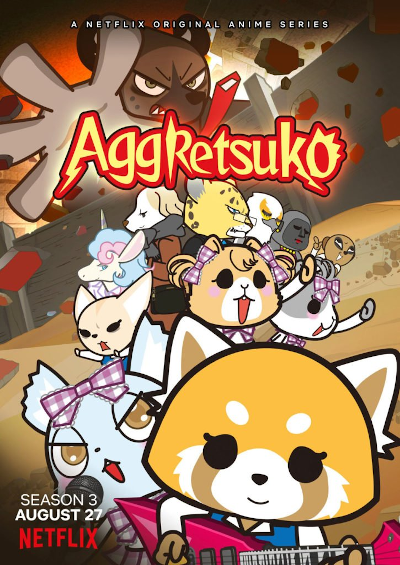
It's with all this background that I must confess, the thing I actually wanted to talk about when I set out writing this is a TV show made by the company behind Hello Kitty. Aggretsuko is a Netflix television show featuring a young red panda woman named Retsuko. By the time the show starts, Retsuko has worked as an accountant at a large, international company (Carrier Man Trading Co., Ltd.) for five years. The story follows her as she navigates various predicaments in her office and her personal life. Notably, Retsuko's characterization largely comes from her form of stress-relief: she secretly sneaks away to sing metal in a karoake bar. It's her manner of coping with the stress and repression she feels due to the expectations society puts on her.
Naturally, a strong cast of characters is developed around Retsuko. Fenneko is a fennec fox coworker-friend, a cold and logical woman whose study of human behaviour allows her to infer information about others based on subtle clues in their social media and actions. Washimi and Gori are two higher-up employees of the same company, who take Retsuko under their wing and become her best friends after realizing they share a yoga class together in Season 1 (in the case of Washimi, a messenger bird, literally; Gori, a gorilla, more metaphorically). Ton is her pig boss (literally and metaphorically); he's often misogynistic and needlessly petty, but, rarely, he gives straightforward advice for problems Retsuko has gotten herself into. These problems usually arise due to Retsuko's pathological inability to say the word "no". And then, there's Haida.
For two seasons, Haida kinda sucks. For a few episodes in the first season, he's mostly just an office friend, commisserating with Retsuko and Fenneko about their work. It's revealed that Haida has a crush on Retsuko, and has been trying to build up the nerves to ask her out. When he starts trying, she has other plans and declines, and he gets weirdly jealous over it. He gets vexingly braggy about fixing things like Retsuko's laptop for her. He's uncomfortably overenthusiastic about Retsuko drinking and singing karaoke at an afterwork party. And when Retsuko ends up dating Resasuke, another red panda employed in a different department in the same company, Haida takes it poorly, going out drinking and getting himself sick with pneumonia.
Retsuko visits Haida in the hospital, still sick with pneumonia, shortly after breaking up with Resasuke, and Haida unexpectedly confesses his desire to date her. Retsuko turns him down. He accepts it gracefully enough at the time, but in private conversations with Fenneko, it's clear he still has a crush on her. He white knights for her when Fenneko implies Retsuko's newfound social media presence will cause her to dress in more revealing clothing. On the same day as the party itself, he asks Fenneko to come to his Christmas Eve party in a bid to convince Retsuko to also come -- only to fall prey to his nerves again and fail to invite her at all. He fanboys over a tech CEO (Tadano), only to exclaim he wants to punch the guy when he learns Retsuko is dating him. In short, for two seasons, Haida is just... kinda gross and weirdly possessive of Retsuko even after she establishes some boundaries.
Season 3... makes changes.
Dreams are candy coated, I'm not sure what I should do
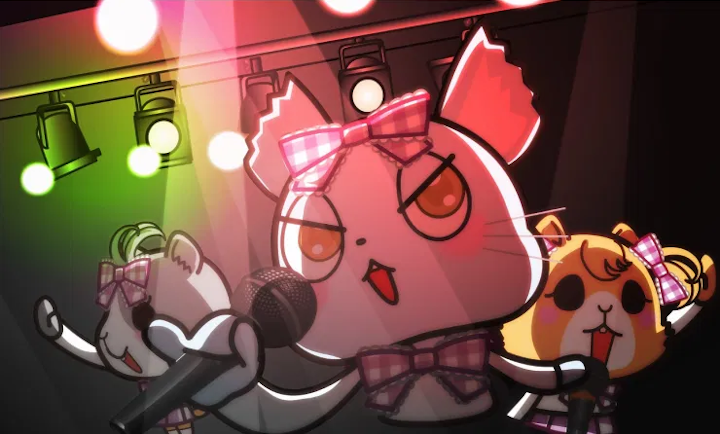
Whereas previous seasons mostly revolved around instances of office drama and hijinks, Season 3 largely takes place outside Carrier Man Trading. Retsuko gets into a car accident for which she is at fault. In order to pay off the cost to fix the other party's car, she begins to work for the man, Hyodo, as a side job. Hyodo turns out to be the manager of an underground pop idol group (OTM Girls), but the financials of the group are a mess and they aren't making any money. Retsuko begins as an accountant, trying to figure out how to put the group in the black. When Hyodo stumbles upon her singing death metal at the karaoke bar, he decides to have her join the group as a singer. His thinking is that, in order to create buzz about the group, they will adopt death metal as their gimmick. Older fans of the group hate the new direction, and blame Retsuko directly; as a result, one particular fan stalks and ultimately assaults her. She survives with only minor injuries, but the event clearly shakes her.
Retsuko's assault isn't the only time the idol business puts her in horrible positions. When event promoters won't give Hyodo any cut from the entry fee at the group's performance, Hyodo sends Retsuko to try to scare out the money. The promoter has Retsuko get to her knees and beg for it, before revealing it was a "joke". Retsuko doesn't actually agree to be a singer with OTM Girls; Hyodo forces her to by "going all in" on the guess that, given the choice between letting the group look foolish when nobody sings her song and performing it herself, Retsuko will perform the song. Once she's formally one of the idols, she's tailed out of a venue into an alley by her coworker Komiya, despite the clear signals she gives that he is making her uncomfortable. When the group offers fans an opportunity to hold the idols' hands as a reward for purchasing their CD, an obsessive fan collects so many handshake tickets that he holds Retsuko's hand for 5 minutes, the entirety of which he spends insulting and belittling her. The other members of the band are too shocked to intervene, and Retsuko hides in the bathroom shortly after, washing her hands compulsively to rid herself of the sensation of the fan. In short, Season 3 features capital T Trauma for Retsuko, which... is a stark departure from the tone of the show in Seasons 1 and 2.
In terms of characters, a decent portion of the show is devoted to the idol group and Hyodo, meaning that older characters like Fenneko play a smaller role. Fenneko really only serves as a foil for Haida; her logic-oriented, calculating demeanor stands in sharp contrast to Haida's largely sentimental manner. A new character, Inui, appears as a potential love interest for Haida. Manaka, the original center of OTM Girls before Retsuko's involvement, gets deep characterization. After their falling out in Season 2, Gori and Washimi are... still distant, though apparently making up some. They have scenes together, but one portion of the plot revolves around Washimi keeping details of Retsuko's debt from Gori, so that Gori won't worry about it. Washimi herself has to force the truth out of Retsuko, only knowing to ask about it because Haida tips her off that something is wrong. Tadano reappears, having apparently taken the time since his separation with Retsuko to grow significantly.
And Haida... Well, let's go back, real quick, to the end of Season 1. Haida is in the hospital with pneumonia, Retsuko has just broken up with Resasuke, and she's visiting him after a rush job at work has left everyone exhausted. And this is what he says:
"It's just, I know you way better than that guy ever could. Five years now, right? So, how did I lose to him?" That's what I wanted to say. But the truth is, I don't know you. The Retsuko I know is the idealized one in my head. Ueh... I guess what I'm trying to say is that, uh... You know where I'm going with this!
I'll note that, given the contrast between Retsuko's initial upbeat response to this line and her embarrassed deflection and rejection immediately after Haida actually asks the question on his mind, it seems like Retsuko did not know where Haida was going with this. But I draw attention to this line because, even early in the show, Haida recognizes that, as much as he's developed this crush on Retsuko, as much as he has this idea of who she is, he knows it's incomplete. Whereas Season 1 and 2 lightly touch on this every so often, the question of how much Haida actually does or doesn't know about Retsuko becomes the core of his character arc in Season 3.
During the beginning of the season, Haida and Fenneko observe Retsuko's increasingly unhealthy lunches, and discuss why she is eating so poorly. Fenneko notes Retsuko's use of a VR boyfriend, and hints that perhaps this is Haida's chance; he instead chides her for divulging a potentially embarrassing secret. But when Haida and Fenneko try to help Retsuko, or even to ask what's going on, only to repeatedly get lied to that everything is "fine", Haida eventually bursts out to Fenneko, "What do you think we are to her?" Fenneko replies that they must just be only one step above coworkers.
The way Haida has acted towards Retsuko in past seasons colors the way people interpret this season, I think. In Seasons 1 and 2, calling Haida a "simp" would not be out of place. In Season 3, though, it feels less apt; the most egregious behaviour he exhibits is buying a last-minute plane ticket to suddenly and unexpectedly follow Retsuko to Hokkaido. But, in context, it's less weird than it sounds; Gori had dragged him into spying on Retsuko to find out what she was hiding from everybody. When they see her get into a strange van with a group of young women and an older man that neither of them recognize, alarm bells start ringing. When the van goes to the airport, and Haida overhears Hyodo yelling at Retsuko with his oversized ears (in one of only three times, by my count, that a character actually uses their animal characteristics for any purpose; all three, incidentally, are by Haida, and all come in this season), I don't think it's that outrageous for a person in that position to worry about something seriously bad going on. And when he lands in Hokkaido with them, he doesn't rush in to "save" Retsuko. He hangs back to try to figure out what the situation is. When he discovers the truth (that the people Retsuko is with are a band she is keeping her involvement in secret from everybody she knows), he acknowledges he doesn't have a place stepping in, and accidentally bumps into Tadano while getting ramen.
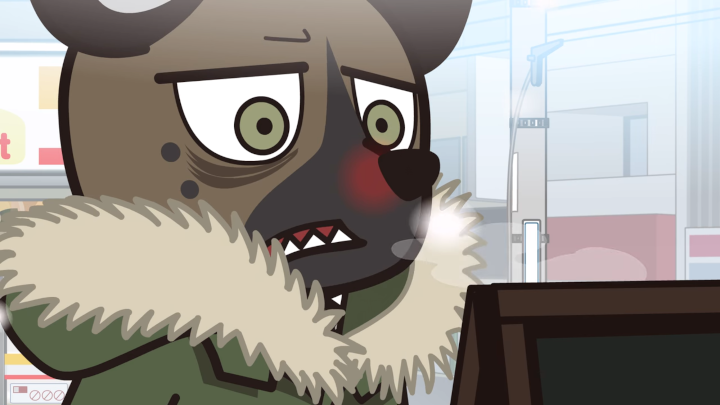
Talking with Tadano is where we get the explicit return of that question from back in Season 1, of how well Haida knows Retsuko. As they commisserate over their shared rejection by Retsuko, Haida and Tadano have the following exchange:
Tadano: "Mmm. I know that face. You like Retsy, don't you?" Haida: "What?! It's not like that, okay? We're just friends." Tadano: "You said that she never told you about being an idol, didn't you? Pretty crazy how you ended up at her out-of-town concert. You obviously followed Retsy all the way up to Hokkaido." Haida: "No!! Well, yeah... but no! As someone who works with her, I guess I was just worried about her! That's all." *beat* Haida: "I ask how she is. A lot. She always smiles and says, 'Fine.' How do I help her? I... don't know. I have no idea what she's thinking." Tadano: "Well, that's how it is." Haida: "You're right. How could I? I guess that I... don't really know her at all." Tadano: "And that's okay." Haida: "Huh?" Tadano: "At least you know that you don't know. Sometimes you think you're really in sync with a person. You take it for granted. You listen to yourself instead of listening to them." *beat* Tadano: "Hey, my bad. Just... thinking out loud."
The moment, at its surface, is evident of the character growth Tadano has undergone off-screen. He's come to recognize the fatal mistakes he made in his relationship with Retsuko, and points out that Haida is doing better than him if he realizes that he doesn't see the whole picture. There's also a subtle undertone to this conversation, especially given its context. The fact was, other than Washimi, Retsuko didn't let anybody in on the fact that she would be taking this trip to Hokkaido. Though Tadano clearly had some deep flaws about not seeing or looking for what was going on for Retsuko internally, even the people who do try to look for that get shut out. Tadano implies that, in contrast to himself, Haida actually is listening to Retsuko -- in some sense, Tadano's not wrong. Haida recognized that, if he didn't know about the show, this was a boundary that Retsuko had implicitly set, and he respected that (unlike Komiya). But, Retsuko only speaks in riddles. Her boundaries really aren't clearly set, in part because if anybody ever pressed her on what they actually were, she likely would have a great deal of trouble telling them. Until you get her in the karaoke booth, Retsuko doesn't discuss her feelings, as a general rule. This... isn't healthy.
As this is happening, Haida begins being courted by Inui, a spaniel working in Administration at Carrier Man Trading. Their meet-cute (arguably less effective than the one that occurs between Haida and Tadano at the ramen shop) comes at a record store, from which they immediately hit it off and talk about their shared musical interests at a bar. Fenneko largely encourages Haida to pursue a relationship with Inui, observing Inui's clear signs of interest in him and the general chemistry they have. Logically speaking, Inui would appear to be a great match for Haida. They share interests, they talk with one another. Eventually as they chat, they come to banter a little. It's cute. But somewhere within Fenneko, she recognizes the absurdity of the position she's taking after five long years of Haida crushing on Retsuko, and they have this interaction while drinking together:
Fenneko: "Does it mean. You're giving up on Retsuko being a thing?" *beat* Fenneko: "I'm asking you if you're ready to throw in the towel?!" Haida: "Inui's a nice girl! And I always have a lot of fun when we hang out. And also... she likes me like that. So... yeah." *beat* Haida: "What is it?" Fenneko: "Tell me what you liked about Retsuko." Haida: "Huh?! What the hell, does it even matter anymore?" Fenneko: "Yes, it does! I've been your wingman on the Retsuko crush for five whole years now. If you're giving up, you need to be sure." Haida: "Mmph." looks around. groans. sighs. Haida: "Back when Retsuko and I first met, she didn't stand out. You know?" Fenneko: "Hmm." nods Haida: "Ah, sure, she was cute! But I thought she was so vanilla. Then, six months after she got hired, I noticed her sneaking around before she left work. She looked so guilty about it. I tailed her until I caught her in the act!" laughs "She was refilling her empty bottles with water out of the department's cooler and taking it home with her!" laughs again Fenneko: "Wait, what are you going on about?" Haida: "Retsuko was living a double life as a water thief!" continues laughing Fenneko: "I don't follow at all!" Haida: sighs, looks down "And that's how it began." Fenneko: "Come on! That's when you started to like her?!" Haida: "I liked her for a bunch of reasons, but that was the first. It showed me that she wasn't perfect, you know? Neither am I. I'm all messed up." Fenneko: "Yeah. Dumb. Lame. Cheap." Haida: "A jerk." Fenneko: downs glass of wine "A jerk is the one thing you're not."
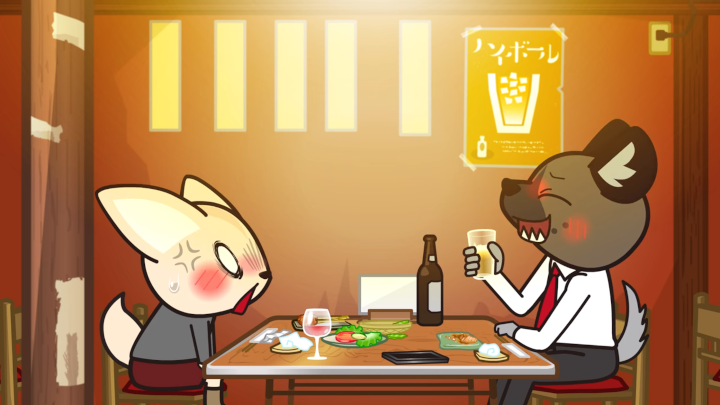
And it's easy to overlook this moment. Fenneko doesn't even get it, astute observer of the human condition as she is. When pressed on what Haida likes about Retsuko, he doesn't talk about shared interests. He doesn't focus on things like, how he feels when he's around her. Obviously, Retsuko doesn't have the same outward affection for him that Inui does, so he can't talk about that. Instead, he talks about... a moment, where he saw a glimpse of who Retsuko was when she thought no one was looking. He saw Retsuko as her own person. And it's... kinda silly, and if he told Retsuko about it directly, you get the sense that he'd definitely be ribbing her about it. "Stealing" water may not be exactly vanilla, but it's hardly all that punk either. But that little moment, that glimpse into who Retsuko was, was the beginning of the feelings he had for her.
This exchange also sets up for Haida's uncertainty about his feelings for Inui vs. Retsuko to blow up in his face; in that very conversation, Retsuko texts Haida asking him to teach her guitar, on the same day he had already made plans for Inui to come to his place for a date. Despite the obvious scheduling conflict, Haida agrees. And... it does blow up in his face. Inui meets Retsuko as she's leaving, and between that and clear clues in Haida's apartment, figures out what had happened. She has an emotional response to it, but is clearheaded about it for the most part; Inui and Haida had not established the parameters of their relationship, and whether Retsuko had been over as a friend or otherwise, there wasn't a reason yet Haida couldn't do that. But, Inui still has feelings for him, and given other clues, she has begun to sense he has feelings for Retsuko. So, she decides she needs some time to herself to process what's going on, and leaves in the middle of their date.
The leaving is, perhaps, a little bit of an overreaction, but ultimately, what Haida and Inui should do is have an honest discussion of their feelings. And Inui does try to initiate it -- if she had just walked out of the bathroom and asked Haida if he liked her, that would be pretty sudden/presumptuous! Leaving the apartment entirely is a signal that something serious has just happened, and that she knows what's going on. It may not cross any explicit lines, but she's still feeling hurt, which is reasonable. And she asks Haida, point blank, if he likes her the way she likes him. That's the conversation they're supposed to have!
Haida answers, though not in the way he "should". The "optimal" response would be to realize what Inui's reacting to, ask her back into the apartment, and discuss the matter honestly and directly with her. Instead, he can't answer at all. But, really, that's telling enough on its own. It doesn't take a genius to realize what this means. The answer may not be "no", but it's sure not an enthusiastic "yes" either; Haida doesn't know, and Inui can figure that out pretty easily. So she leaves, and the ball is in his court to figure it out. And that brings us to the final episode of the season.
Haida, trying to decide whether to continue pursuing Retsuko or leave that behind for Inui, turns to the fates to help him. He flips a coin. He uses Amidakuji. He plays "She loves me, she loves me not". Each one comes up telling him to pick Inui. Fenneko teases him for it, telling him to just pick one of the two himself, but... in truth, he already has, hasn't he? If each test gave him the same answer, but he kept defying them to seek out a new one, the conclusion is clear. He wanted the other answer, whether or not he can admit it to himself.
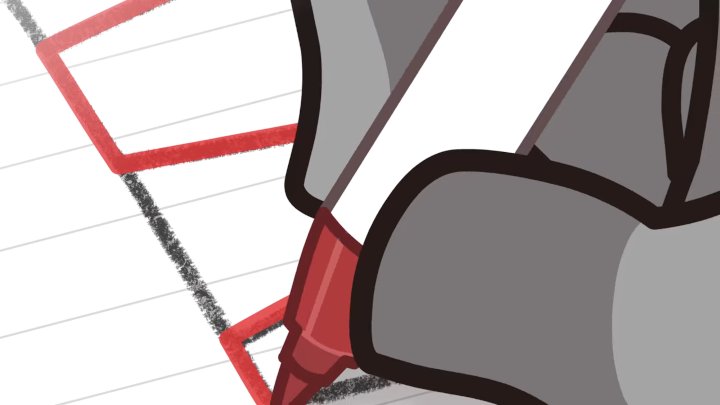
The next day, as Retsuko is leaving work, Manaka calls her, trying to warn her that her stalker has followed her to work and may try to do something. Retsuko blows her off. Haida, sitting nearby, overhears the distress in Manaka's voice from the phone. And, it's cliche'd, but he follows her again. Lucky that he does -- he is able to catch the stalker's box cutter before he can land a blow on Retsuko and saves her life. With the help of passersby, the stalker is apprehended, and Haida rushes to Retsuko. And... Inui walks up.
The way he looks after Retsuko, the pain in his eyes when he thinks she might be bleeding or dead... Haida's answer could not be more clear. He still loves Retsuko. When Inui points it out, he doesn't understand. He tries to play it off at first. In an impulse to say what he thinks Inui wants to hear, he begins to say he would've picked her. But he can't even bring himself to finish the sentence when Inui gives him a "C'mon, dude" stare. He has a moment of realization, holding Retsuko, waiting for the ambulance, as Inui walks away.
That realization, though, is much deeper than just "he still has a crush on Retsuko". It's about how much he knows her. Some time passes, and Fenneko and Haida are talking to Washimi and Gori about the aftermath of the assault. By this point, Retsuko has moved back in with her parents. If she doesn't return to work soon, she will likely be fired. But, what could they do? When Haida reveals he turned down Inui, they all look at him like he's grown a third head.
Gori berates him for not taking her advice and picking Inui. Fenneko calls him "the king of stupid". Washimi lectures him about the trauma that Retsuko is dealing with. Gori questions him: "How well do you even know Retsuko?" Washimi points out he can't magically ensure Retsuko will feel safe; her feelings of being overexposed are well-founded. Gori... invites him to gamble.
To explain that last bit, when Gori first learned of Haida's feelings for Retsuko, she dared him to try her matchmaking app. After all, Retsuko was also on the app. If they got paired up together, then maybe that means they really should be together! And if they didn't... they weren't really all that compatible anyways. She aggressively pushes the app on him, but he declines, and Tadano interrupts to ask Gori details about the app and offer to let her incorporate his AI into it. So, when Gori tells Haida to try her app again now, it's with full knowledge that Tadano's invasive AI that tracks people's every action is powering it to match up user compatibility. In the universe of the show, this is supposed to be the ultimate ground truth.
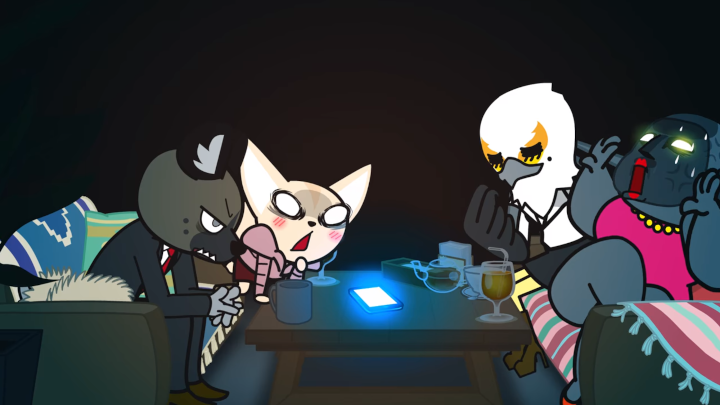
Gori again pushes the app on him. Whereas before Haida actively declined, this time, he does nothing. In fact, he has the cold stare of a poker player with a royal flush, who knows his opponent has just walked into a trap. He doesn't make a single move as Gori takes his phone and registers him for the app; he knows, finally, fully, there is not a single hand possible that could beat his. And when the app shows what he knows it will, that he and Retsuko are "100% compatible", he doesn't react at all, even as everyone else freaks out. Why would he? The outcome was never in doubt.
Let me be that one speck of a miracle
So this, finally, ultimately, brings up the issue with Aggretsuko Season 3. Everything to do with the idol group and the shit Retsuko went through with it is one thing, terrible, horrifying. Now, she sits at home all day, trying to heal. But... she's not healing, not really. She doesn't leave, she doesn't process anything, she's glued to her phone. She needs... a therapist, for a start. I mean she's clearly needed one for a long, long time before this, but this only further confirms that. And Haida does something hard, instead of soft.
With the blessing of Gori, Washimi, and Fenneko, under the auspices of his confirmed "perfect match" status, he goes to Retsuko's parents' house to find her. Honestly, if her mother assumed he was yet another stalker come to try to hurt her, no one could blame her. He sticks his foot in the door and has a weird expression on his face. But the "perfect match" is his ticket into the house, and Retsuko's mother lets him pass. Then, he grabs Retsuko and, with the help of Washimi and the gang, drags her to karaoke. That's, uh... not exactly cool. Like, I'm not gonna belabour this point because this is where the discussion of how this whole scene makes people really uncomfortable starts. But, she was just assaulted, and the fact that he was there to help her (and also got stabbed himself) doesn't really excuse that this is a violent act. The SFX when Haida grabs her are loud and aggressive. It's supposed to be uncomfortable.
Haida and Retsuko sit alone in the karaoke booth. Outside, Fenneko asks Washimi why they came here. I point this out not because the question or its answer matter, but because I insist on reminding you that Haida isn't doing this by himself. Retsuko's closest friends sanction it; in fact, they encourage him to take this action. At first, Retsuko passively accepts it. As Retsuko and Haida begin to talk, she begins to actually let her frustration with the situation show. Haida asks her to come back from her parents' house.
Retsuko says, she can't. She's still scared. There's so much she doesn't know how to deal with. And now, making matters worse, she has this guy who doesn't really know her, these friends who are throwing her into a bad situation, and she wants to be left alone. She feels trapped by his feelings.
To be fair, it might be the subtext she's reading in that moment, but that's not why Haida is in the karaoke booth with her. He's never brought his feelings up, not now, and not ever since the conversation in the hospital. Up until this moment, whether she realized it or not, he had been respecting the few boundaries she actually in some manner communicated to him. He's invited her to friend things, or tried to help when he saw that she was in trouble. He didn't press her when he knew she was lying to him, or when she did things that could uncharitably be read as taking advantage of him. And at this point, those sorts of things have happened over and over and over again. But despite all that, he is in this booth because, as her friend, he cares about her, and wants her to heal. When she says he doesn't even know her, it's not damning him. It's damning herself. She could say that to any of her friends sitting outside the booth and it would be as much true as it is of Haida. Whose fault is it that nobody knows her? She's the one who never lets anybody in. So now that she's made the conversation about feelings, it's time to talk about feelings.
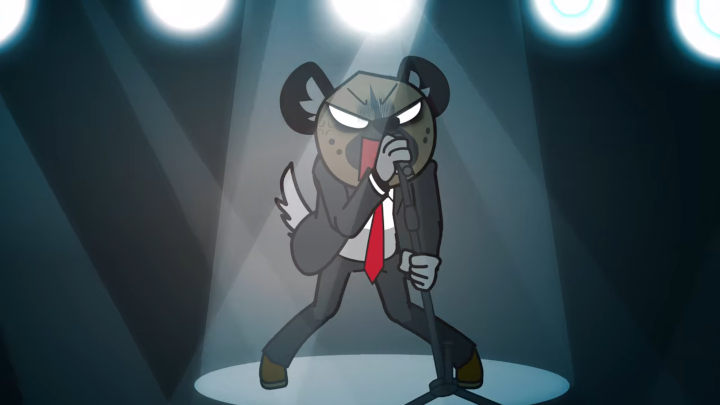
Punk is not subtle music. A punk song will not gently make its point and let you come to your own conclusions. The punk aesthetic is... in short, in-your-face. And Haida is a punk boy. To tell someone who has clearly experienced trauma, who is not over it, that they are "chicken" and need to crawl out of their cave is not soft. But that's not the point. Really, any of the words of Haida's song isn't the point itself. He's goading her. Because, actually, Haida does know her. He remembers the way she had to go to karaoke to tell off Tadano and break up with him; he literally helped her kidnap Tadano to do that. He knows about the metal stuff. He knows that, the only way she seems able to process her feelings is when she gets angry enough to let it out in a song. And he wants her to heal. So if he needs to be the villain to get it to happen, he'll step up to the role he's been given.
And she's distraught. She says she doesn't know what she wants, at first. Not until Haida breaks out the cheesy line and the app results, and her feelings are able to metastasize into rage. But as she belts out her lines, unlike the two previous season finales where she told a guy off and they either were completely oblivious (Resasuke) or walked out unsure what to make of it (Tadano), Haida... actually listens. She's right, he barged into her house and dragged her here. And she has to be the one to make the decisions in her life. He can't just magically save the day -- Washimi pointed as much out to him some fifteen minutes ago. But that doesn't mean she has to do it all alone the way she's been trying to for years, and that's what he wants her to understand. Where the two other season finale songs end with the death blow, and Retsuko crying as Washimi and Gori try to console her, this one ends much more shockingly. Haida holds her hand. The world may have punched first, but he wants to punch back with her.
The season ends. Retsuko quits the OTM Girls, having paid off the last of her debts. It seems a little odd; it was one of few things she's described as being actually any fulfilling in her life. Read uncompassionately, the show needs to reset to its "normal" state to be able to start a new season like before. The idol group gets in the way of things, so like Tadano, it's cast aside, in a display of "regressive values". But Tadano wasn't cast aside just so Retsuko could uphold the institution of marriage on her own back. Instead, Tadano did not listen to Retsuko and her desires, point blank. He admits as much when talking to Haida; he just assumed he was in sync with Retsuko, but their relationship was not actually all that great. I think you could read quitting the OTM Girls in two ways. For one thing, just because she's able to go out and perform some, doesn't mean Retsuko's trauma is completely healed. It's fair to want to walk away from a responsibility like performing that carries with it that sort of baggage. But also, joining the OTM Girls had never been her decision in the first place. When she chastises Haida at karaoke about decisions needing to be hers, it turns out, there's a lot of things she was doing despite being forced into it by other people! She joined as the group's accountant under duress because she owed Hyodo a ton of money. And she joined as an idol because Hyodo pressured her into it. Neither was really of her own volition; even if she enjoyed them, walking away to find something she can feel true ownership over the decision to do is reasonable too.
I will grant, however, that my positive read on everything about Season 3 comes with an assumption. After the trauma Retsuko experienced, after the growth that's hinted at in the last karaoke session, after the tease that Retsuko is finally opening up to her friends, and that maybe there's room for more with Haida... things can't just "go back to normal". On the one hand, this actually could be an okay place for the show to end. It doesn't feel... totally resolved, but by not doing more, at least the show wouldn't be able to fuck up the things it did well in this season. That, uh, isn't the most inspiring rationale though. If the show did continue through a Season 4, then, it can't just reset things to "normal". It can't do a second Haida-Retsuko relationship fakeout. It can't just drop Retsuko's trauma and the process of healing. These things fundamentally changed what the show is and how the characters are. But if the show doesn't respect that... then yeah, that will suck. Guess we'll see.
Is that your ideal? Is that your mind? Imasugu / YOUR LIFE IS YOUR OWN
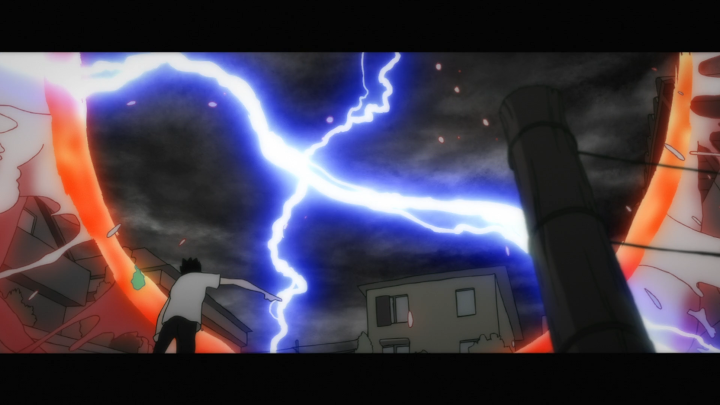
As a coda to this piece, although the inspiration for this post was Aggretsuko, and my desire to essentially... defend Haida, I guess, I'd like to go back to the point I was making before I began to talk about Aggretsuko. If the karaoke scene -- where Haida drags Retsuko out from her parents' house, confesses (again) to her, and calls her a chicken -- makes you uncomfortable, that's fine. It may trigger something specific for you, or it just might be generally a weird fucking moment. And I mentioned some mitigating factors: that Haida wasn't doing this to score romantic points, that he was backed by all of Retsuko's friends (and her parents, for that matter), that he saw this as the only way she would let herself actually start to heal. But even with those, I think it totally makes sense that people would find the hardness of the actions taken in that scene to be uncomfortable. That's not incorrect, that's not a position to be made light of or dismissed.
However, the fact that those actions were hard in this way does not inherently make them bad. Sometimes, in order to move past a blocking point, conflicts have to get a little hard. For a soft approach to work, somebody has to employ it, yes, but the other party has to hear them out too. Whether people need some "tough love" or something else, occasionally talk just won't get through to them, no matter what you say. This is an important lesson to learn along with the value of soft approaches, when called for. Now, of course, I think we can take some caution before replicating anything Haida does. And we still have to be caring and empathetic, even when we take hard approaches, to reach the best outcomes. But hardness is not inherently bad.

Comments
Feel free to share your comments here. I approve each comment before it becomes visible. Sorry if this doesn't happen quickly; I have other stuff going on sometimes. Use common sense about what to post; no racism, no sexism, no homophobia, no transphobia, and so on. Be good to each other, that is. If you format your comments in Markdown, they will be rendered when they get put up on the site (though some features, like images, are not supported).
There are currently no approved comments.
make comment